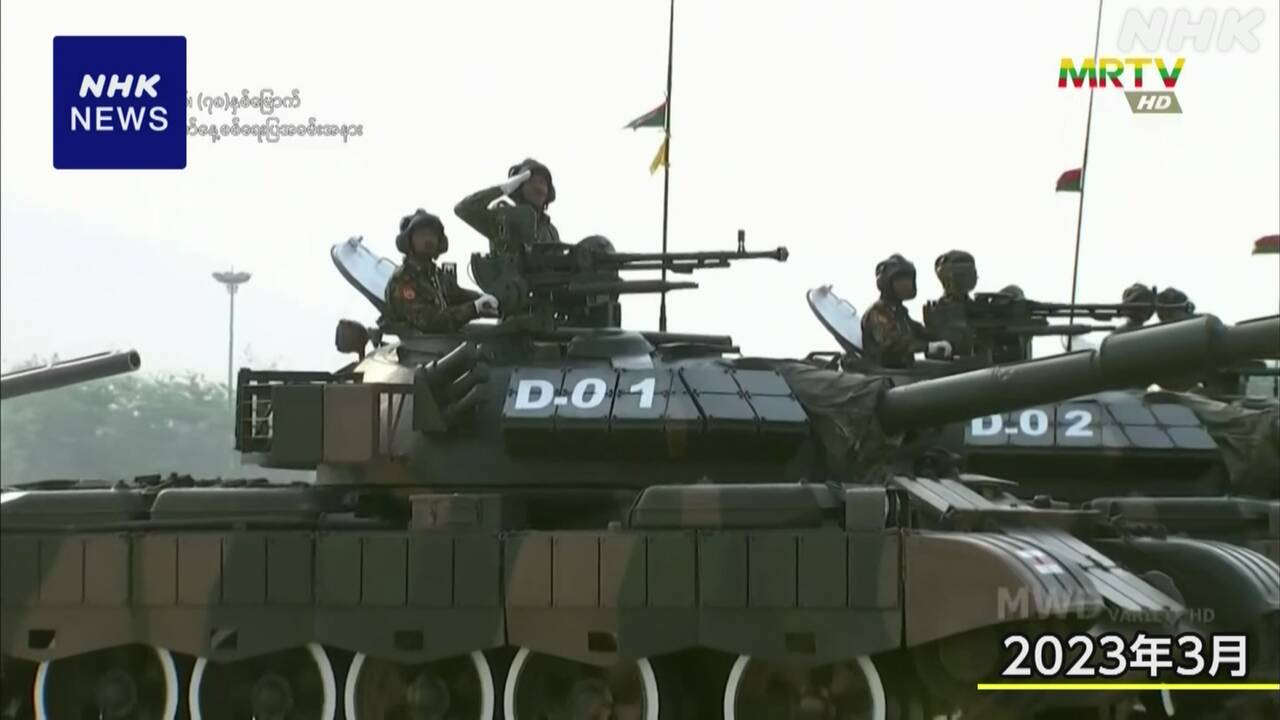In Myanmar, the military, which has been in power since a coup three years ago, will hold a large-scale parade on the 27th. This year's parade is scheduled to be held in the evening, and there is a growing view that they are wary of attacks from rival democratic forces.
In Myanmar, a large-scale military parade is held every year in the capital Nay Pyi Taw to commemorate the day when the military's origins rose during the Pacific War against the former Japanese military in an effort to gain independence.
The parade is an opportunity for General Min Aung Hlaing, the military chief who has held power since the coup three years ago, to display military power by observing fighter jets flying in formation and soldiers marching in formation. However, according to officials, the start time will be changed from morning to evening this year.
Since last fall in Myanmar, the military has been exposed to large-scale offensives by pro-democracy forces and ethnic minority armed groups in various locations, resulting in many soldiers dying or surrendering. Analysis shows that the number of military personnel in the country has decreased by about 20,000 compared to before the coup.
Against this backdrop, the military announced the implementation of conscription last month, but chaos continues as young people flee to neighboring Thailand or join pro-democracy forces in an attempt to avoid conscription.
A military spokesperson explained that the change in the start time of the parade was ``due to weather considerations,'' but there is also a widespread view in local media that the military is wary of attacks from pro-democracy forces. Masu.
Young people joining democratic forces
Since the announcement of military conscription in February this year, a growing number of young people in Myanmar have rebelled against the military and joined pro-democracy forces.
Of these, the pro-democracy forces active in the Central Magway Region have added 50 new members, including women, in the month since the announcement, and now have a total of 150 members.
In addition to basic training such as abdominal muscle training and training on how to move while maintaining a low profile during combat, new members are also taught how to take care of guns and target practice using live ammunition.
One of them, 20-year-old Boo Gyi (pseudonym), joined last month from the largest city, Yangon, with three friends.
Now, while living together with my friends, I am preparing to fight against the Myanmar military on the front lines.
Regarding the reason for joining the pro-democracy forces, Boo Ghi said, ``After the coup, I tried to join the pro-democracy forces with my father, but my father died of the new coronavirus.When the military imposed conscription, I tried to join the pro-democracy forces. ``I had to choose whether to join the democratic forces or join the military.''
He also said, ``Even when I was walking around my neighborhood at night, I felt like I was in danger when a car with its lights on approached from behind.It was dangerous to go out freely.'' He said that he always felt the fear of being drafted into the military.
Pho Tha, deputy commander of the pro-democracy force to which Boo Ngi belongs, said, ``There were citizens who wanted to join the pro-democracy force but were unable to do so due to various reasons, but the announcement of conscription forced them to do so. They sent them to fight. Joining the military is not an option for them. If fighting is their only option, they think it would be better to join the democratic movement rather than the military. Too many young people have joined. "As the host, we are not prepared."

